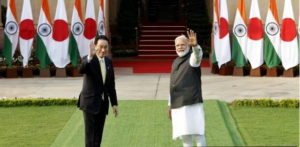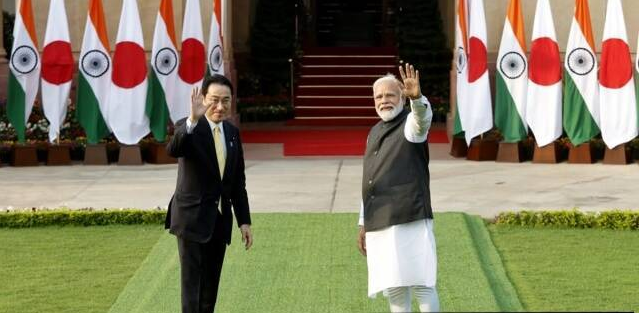PM Modi has departed for the Japanese city of Hiroshima for the Group of Seven (G7) summit, which will be held between May 19 and 21. The impact of the Russia-Ukraine war on food security and nuclear non-proliferation issues are expected to dominate the agenda.
Over the course of the next six days starting today, PM Modi is set to visit three countries — Japan, Papua New Guinea and Australia. He will also attend three multilateral summits, including that of the G7 and the Quad.
In the departure statement ahead of his tour, PM Modi said his presence at the G7 Summit in Japan is particularly meaningful as India currently holds the G20 presidency. He also said he is looking forward to exchanging views with the G7 countries and other invited partners on the challenges that the world faces and the necessity of addressing these challenges as a unit.

Meanwhile, over 40 engagements have been lined up for the three-nation tour, officials informed. The Prime Minister will interact with over two dozen world leaders in summits as well as through bilateral meetings, they added.
PM Modi is the first Indian PM to visit Hiroshima after India conducted nuclear tests in 1974. He is travelling to Japan at the invitation of Prime Minister Kishida Fumio.
What’s on the agenda?
As per reports, the broad agenda of the G7 summit will revolve around nuclear disarmament, economic resilience, economic security, regional issues, climate change, energy security, food security and health.
PM Modi is also expected to speak on challenges facing the globe including food, fertiliser and energy security.
“There are several deliverables which we are expecting to come out of it and I think all that would be showcased when the four leaders meet in Hiroshima,” Foreign Secretary Vinay Kwatra said at a media briefing.
India’s participation at the summit would be structured around two formal sessions — first on May 20 and second on May 21, the Foreign Secretary informed. The first session will be on food, health, development and gender equality, and the second summit will be on climate, energy and environment. A third session is planned around the theme of ‘a peaceful, stable and prosperous world.
Foreign Secretary Kwatra said that India’s regular participation at the G7 summits clearly points to increasing recognition that it should be a part of any serious effort to resolve global challenges including those of peace, security and development. “This is even salient in the context of our ongoing presidency of the G20 and our particular efforts to prioritise the interests and concerns of our fellow members of the global south,” he added.
The Prime Minister will also hold bilateral meetings with several leaders on the sidelines of the G7 summit in Hiroshima. However, the details of the meetings are being worked out.
As he left for Japan, PM Modi said in a tweet, “…Looking forward to a healthy exchange of views on diverse global subjects.”
Second and third legs of the trip
Prime Minister Modi will travel to Port Moresby in Papua New Guinea from Japan — the first-ever visit by an Indian PM to the Pacific Island nation. He is scheduled to host the third summit of the Forum for India-Pacific Islands Cooperation (FIPIC) jointly with Papua New Guinea Prime Minister James Marape on May 22.
“I am grateful that all 14 Pacific Island Countries (PIC) have accepted the invitation to attend this important summit. FIPIC had been launched during my visit to Fiji in 2014, and I look forward to engaging with the PIC leaders on issues that bring us together, such as climate change and sustainable development, capacity building and training, health and well-being, infrastructure and economic development,” PM Modi said.
PM Modi will visit Australia in the third and final leg of the trip. He is expected to hold talks with his counterpart Anthony Albanese and address a diaspora event on May 23. “I will also interact with Australian CEOs and business leaders and meet the Indian community in Sydney at a special event,” he said.
The Foreign Secretary also indicated that PM Modi may raise incidents of attacks on Indians in Australia during his talks with his Australian counterpart.
Also read: Sameer Wankhede Skip CBI Questioning in Aryan Khan Bribery Case






